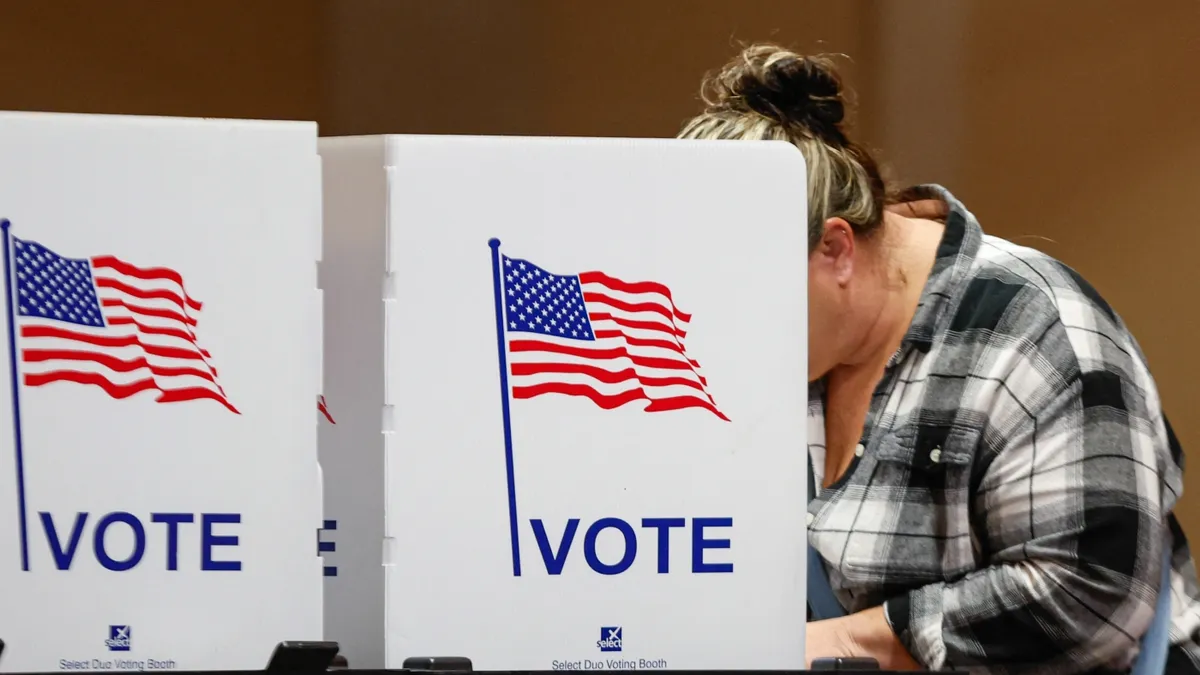
As the Safeguard American Voter Eligibility Act (SAVE Act) progresses to the Senate, a significant debate has emerged regarding its potential impact on voting access for millions of married women, particularly those who have changed their last names. This legislation aims to implement extensive reforms in voter registration processes, originally introduced amid concerns about voter fraud. However, studies have consistently shown that instances of voter fraud are exceedingly rare and do not significantly influence the outcome of American elections.
Among the most significant changes proposed in the SAVE Act is the requirement for individuals to prove U.S. citizenship prior to registering to vote. Acceptable forms of documentation include a birth certificate, a U.S. passport, naturalization papers, and certain versions of the Real ID that indicate citizenship. However, this poses a challenge for approximately 69 million American women who have adopted their spouse's last name, as noted by a report from the progressive Center for American Progress.
Furthermore, a recent YouGov survey revealed that more than half of all Americans do not possess a passport, which may further complicate the voter registration process for many individuals.
Opponents of the SAVE Act, including Democratic Rep. Ilhan Omar of Minnesota, argue that this legislation could lead to voter suppression, particularly affecting married women. Omar expressed her concerns on social media, stating that the bill would disenfranchise millions of voters. In contrast, supporters of the bill argue that it empowers states to determine what additional documents should be required when discrepancies arise in proof of citizenship.
White House press secretary Karoline Leavitt countered claims of voter suppression, asserting that the narrative surrounding married women’s voting rights is unfounded. "The Democrats have been fearmongering about this bill," Leavitt stated during a press conference, insisting that changes in marital status would not prevent women from voting.
Legal experts have indicated that while states could mitigate potential hurdles by accepting secondary documents, such as legal name change decrees or marriage certificates, this may not resolve issues for all married individuals. Tracy Thomas, a constitutional law professor at the University of Akron, highlighted that court decrees are not commonly required for name changes following marriage. Although marriage certificates are more frequently issued, obtaining one can be particularly difficult for women who have been married for an extended period and may not have easy access to their documentation.
Thomas further emphasized that acquiring a marriage certificate entails additional costs and administrative burdens, creating barriers that other voters do not face. "These might seem like trivial costs, but they accumulate," she explained, noting the time delays and administrative inconveniences that could discourage individuals from participating in elections.
Experts have also raised concerns regarding the potential for varying policies across states, given the ambiguity in the SAVE Act. Keesha Middlemass, a political science professor at Howard University, pointed out that the acceptance of marriage certificates may differ from one jurisdiction to another. "We don't know if marriage certificates will be treated equally across all states," she stated, highlighting the uncertainty surrounding the diverse types of information contained in marriage certificates depending on local regulations.
Should the SAVE Act pass, the full extent of its impact on married women may not be immediately evident. Middlemass noted that the disenfranchisement resulting from these changes could go unnoticed until after elections have taken place. "It's not unusual for voting laws to take time to iron out issues and identify those affected," she explained, stressing that the timing of these significant changes coincides with increasingly competitive elections.
In conclusion, the SAVE Act represents a pivotal moment in the ongoing conversation about voter rights in America. As discussions continue, it is essential to consider the real implications of these changes on millions of voters, particularly married women, and how they might shape the future of democratic participation in the United States.